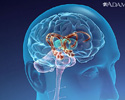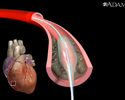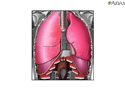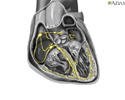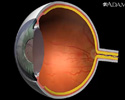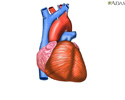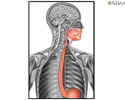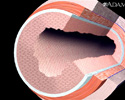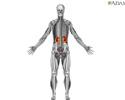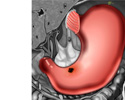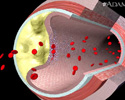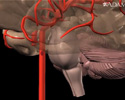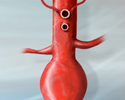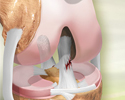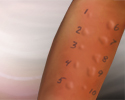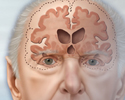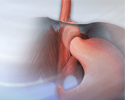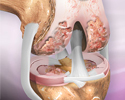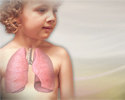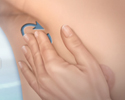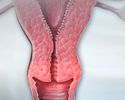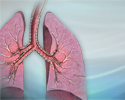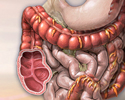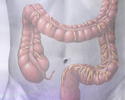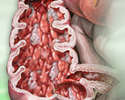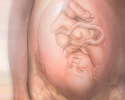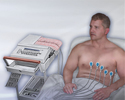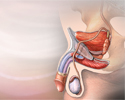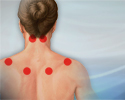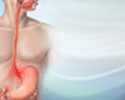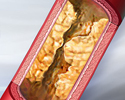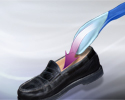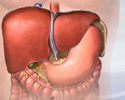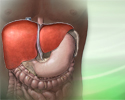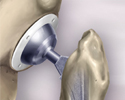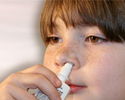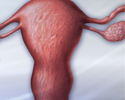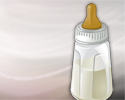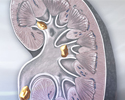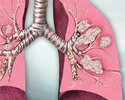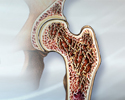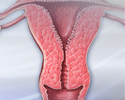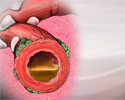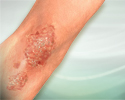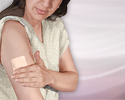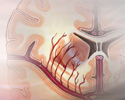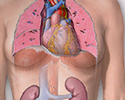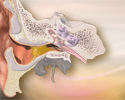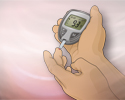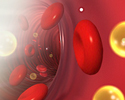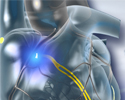NICU consultants and support staff
If your newborn needs to be admitted to the neonatal intensive care unit, or NICU, a group of different medical professionals will be there to help. Here's a rundown of some of the consultants and support staff you can expect to meet in the NICU. Each person who works in the NICU has a different specialty: Your bedside NICU nurses work most closely with your baby, providing care and observing closely for important changes. A neonatologist specializes in the health problems of newborns. They supervise and coordinate care. A cardiologist is trained to diagnose and treat diseases of the heart and blood vessels. If a baby has a heart defect, a cardiovascular surgeon will perform the surgery to fix it. An infectious disease specialist treats babies who have serious infections, including infections of the blood, brain, or spinal cord. A neurologist diagnoses and treats conditions of the brain, nerves, and muscles. You might see a neurologist if your baby has seizures, or is born with a nervous system condition like spina bifida. When the problem needs to be corrected with surgery, a neurosurgeon will perform the operation. An endocrinologist diagnoses and treats hormone problems, such as diabetes. Gastroenterologists are expert at treating digestive problems of the stomach and intestines. A hematologist-oncologist treats blood disorders and cancer. An infant might see this type of doctor for a problem with blood clotting. A nephrologist focuses on diseases of the kidneys and urinary system. If your baby was born with a kidney problem, you will talk to this doctor about treatments, and possibly the need for surgery. Pulmonologists treat newborn lung problems, such as respiratory distress syndrome. You might see this doctor if your baby was born with a breathing condition. Then you'll work with a respiratory therapist to treat the problem. If you had a very high-risk pregnancy, you'll work with a maternal-fetal medicine specialist. This doctor can help if your baby was born prematurely, or you had twins or other multiples. Babies who are born with eye defects see an ophthalmologist, a doctor who diagnoses and treats eye problems. If your newborn needs x-rays, an x-ray technician will take the test, and a radiologist will read the results. Sometimes babies are born with or at risk for developmental delays. If that is the case, a developmental pediatrician will test your child, and help you find the right care once you leave the NICU. The pediatrician may recommend that you see an occupational or physical therapist to assess your baby's reflexes, movement, and feeding. While you're in the NICU, you'll also see a neonatal nurse practitioner. This specialist will work closely with your doctor to make sure your baby gets just the right care. Being in the NICU can feel scary and new at first. Don't be afraid to ask questions. Your NICU medical team is there to care for your baby, and to make sure you're prepared to take over that care once you get home.
NICU consultants and support staff
Review Date: 10/20/2024
Reviewed By: Neil K. Kaneshiro, MD, MHA, Clinical Professor of Pediatrics, University of Washington School of Medicine, Seattle, WA. Also reviewed by David C. Dugdale, MD, Medical Director, Brenda Conaway, Editorial Director, and the A.D.A.M. Editorial team.
Animations
Browse All
- Allergies
- Alzheimer disease
- Ankle ligament injury
- Arrhythmias
- Atherosclerosis
- Athetosis resulting from basal...
- Balloon angioplasty - short se...
- Bladder function - neurologica...
- Blinking
- Blood clotting
- Blood flow
- Blood pressure
- Bone fracture repair
- Brain components
- Breast lift
- Breathing
- Bunion
- Cancer of the throat or larynx...
- Cardiac conduction system
- Cardiomyopathy
- Cardiovascular system
- Cataract
- Cell division
- Cerebral aneurysm
- Cesarean section
- Components of skin
- Conception - general
- Conception - pregnancy
- Conception of identical twins...
- Concussion
- Corneal injury
- Coronary artery bypass graft (...
- Coronary artery disease
- Cosmetic surgery of the face
- Coughing
- Diabetes - retinal conditions...
- Digestion
- Directional coronary atherecto...
- Early labor
- Egg cell production
- Egg production
- Endocrine glands
- Enlarged prostate gland
- Epinephrine and exercise
- Exercise
- Feeling pain
- Fetal ear development
- Formation of twins
- Gas exchange
- Glaucoma
- Gout
- Hearing
- Hearing and the cochlea
- Heart bypass surgery
- Heart formation
- Heartbeat
- Heartburn
- Herniated nucleus pulposus (sl...
- Homeostasis
- Human face formation
- Hypertension - overview
- Immune response
- Kidney stones
- Kids - How big is the baby?
- Kids - How does the baby come ...
- Kids - Is it a girl or boy?
- Kids - Umbilical cord
- Kids - Where do babies come fr...
- Liposuction
- Lymph nodes
- Lymphatics and the breast
- Macular degeneration
- Muscle types
- Nerve conduction
- Nervous system formation
- Nutrient exchange
- Osteoarthritis
- Osteoporosis
- Ovulation
- Parkinson disease
- Percutaneous transluminal coro...
- Peristalsis
- Phagocytosis
- Pituitary gland
- Placenta delivery
- Placenta formation
- Preeclampsia
- Pregnancy
- Red blood cell production
- Reflex response
- Retina
- Retinal detachment
- Rupturing membranes
- Seeing
- Sexual differentiation
- Shoulder joint dislocation
- Skeletal formation
- Skeletal muscle
- Skeletal system components
- Skin conditions
- Smelling
- Smoking
- Snoring
- Sperm production
- Sperm release pathway
- Stomach ulcer
- Stomach ulcer
- Stroke
- Stroke - secondary to cardioge...
- Sun's effect on skin
- Swallowing
- Sweating
- Tachycardia
- Tasting
- The role of amniotic fluid
- Tobacco use - effects on arter...
- Twin-to-twin transfusion syndr...
- Ultrasound
- Urination
- Vaccines
- Vaginal delivery
Videos
Browse All
- Diabetes
- Abdominal aortic aneurysm
- Abdominal pain
- ACL injury
- Acne
- Adenoid removal
- Adolescent depression
- After your child's ear tube su...
- After your child's inguinal he...
- After your child's tonsil or a...
- After your child's umbilical h...
- Alcoholic liver disease
- Allergic rhinitis
- Allergies
- Allergy testing
- Allergy to mold - animal dande...
- Alzheimer disease
- Anemia
- Ankylosing spondylitis
- Anterior shoulder stretch
- Anti-reflux surgery
- Appendectomy
- Appendicitis
- Arm reach
- Arthritis
- Asperger syndrome
- Asthma
- Asthma - children
- Atopic dermatitis
- Atrial fibrillation
- Attention deficit hyperactivit...
- Autism spectrum disorders
- Basal cell carcinoma
- Before a child's tonsil or ade...
- Bipolar disorder
- Breast cancer
- Breast engorgement
- Breast self-exam
- Breastfeeding
- Bronchitis
- Bronchoscopy
- Cardiac catheterization
- Carpal tunnel syndrome
- Cataracts
- Cerebral palsy
- Cervical cancer
- Chest pain
- Childhood obesity
- Cholesterol and triglyceride t...
- Chronic obstructive pulmonary ...
- Cluster headache
- Cold treatments for kids
- Colon cancer
- Colon cancer screening
- Colorectal polyps
- Common cold
- Concussion
- Crohn disease
- C-section
- Cystic fibrosis
- Cystic fibrosis - nutritional ...
- Depression
- Dialysis
- Diarrhea
- Ear infection - acute
- Ear infection - chronic
- Ear tube insertion
- Earache
- Electrocardiogram
- Endometriosis
- Enlarged adenoids
- Enlarged prostate
- Epilepsy
- Erection problems
- Essential hypertension
- External rotation with band
- Fibromyalgia
- Flu
- Food poisoning
- Foot pain
- Gallstones
- Gastroesophageal reflux diseas...
- Gastroesophageal reflux in inf...
- Getting rid of lice in the hom...
- Glaucoma
- Hardening of arteries
- HbA1c
- Head injury
- Head lice
- Healthy Guide to Fast Food
- Hearing loss
- Heart attack
- Heart failure
- Heel pain
- Hepatitis A
- Hepatitis B
- Hepatitis C
- Hernia
- Herniated disk
- Hip joint replacement
- Hodgkin lymphoma
- How do ear tubes come out?
- How to remove a splinter
- How to stop bedwetting
- How to treat a nosebleed
- How to treat a sunburn
- How to use a peak flow meter
- How to use a pill cutter
- How to use eye drops
- How to use nasal sprays
- Hypertension
- Hyperthyroidism
- Hypothyroidism
- Hysterectomy
- Infant formulas
- Inguinal hernia repair
- Inhaler with no spacer - adult...
- Inhaler with no spacer - child...
- Inhaler with spacer - adults
- Inhaler with spacer - child
- Insomnia
- Internal rotation with band
- Iron deficiency anemia
- Irritable bowel syndrome
- Isometric
- Kidney stones
- Knee joint replacement
- Let's talk about pink eye
- Lung cancer
- Lyme disease
- Melanoma
- Menopause
- Migraine
- Multiple sclerosis
- Nasal congestion
- Neck pain
- Newborn jaundice
- NICU consultants and support s...
- Nuclear stress test
- Obstructive sleep apnea
- Osteoarthritis
- Osteoporosis
- Pap smear
- Pendulum exercise
- Peptic ulcer
- Pharyngitis
- Plantar fasciitis
- Pneumonia
- Pregnancy care
- Prepare for your child's ear t...
- Prepare for your child's herni...
- Prostate cancer
- Psoriasis
- Rheumatoid arthritis
- Rotator cuff problems
- Sciatica
- Scoliosis
- Seizures
- Shingles
- Shoulder blade retraction
- Shoulder blade retraction with...
- Shoulder pain
- Sinusitis
- Sleep disorders
- Smoking tips to quit
- Spinal stenosis
- Stent
- Storing breast milk
- Strep throat
- Stretching back of your should...
- Stroke
- Systemic lupus erythematosus
- Tension headache
- The difference between a cold ...
- Tips on buying cold and flu me...
- Tips on removing ear wax
- Tonsillectomy
- Tonsillitis
- Tracking your blood pressure a...
- Treating congestion in babies...
- Treating eyelid bumps
- Type 1 diabetes
- Type 2 diabetes
- Ulcerative colitis
- Understanding cholesterol resu...
- Up the back stretch
- Urinary incontinence
- Uterine fibroids
- Vacation health care
- Varicose veins
- Venous insufficiency
- Wall push-up
- Wall stretch
- Warts
- What are hives?
- What are night terrors?
- What causes wheezing?
- What in the world is a neti po...
- What is tennis elbow?
- What makes your heart beat?
- What to do when kids put thing...
- What to do when kids put thing...
- What to do when something gets...



